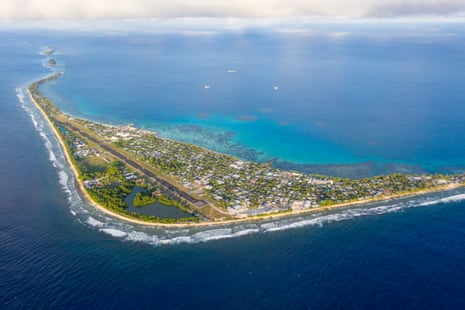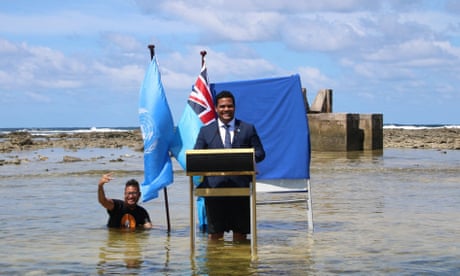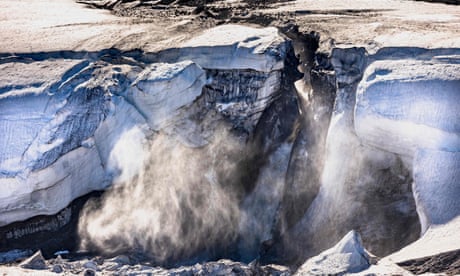Extract from The Guardian
With rising seas expected to submerge the nation by 2100, official says ‘we should always be able to remember Tuvalu as it is, before it disappears’

Fri 30 Sep 2022 03.30 AEST
Last modified on Fri 30 Sep 2022 07.53 AESTGlobal heating is threatening to submerge Tuvalu by the end of the century, and its 12,000 inhabitants are considering the future.
Dr Eselealofa Apinelu, Tuvalu’s former attorney general and current high commissioner to Fiji, told the State of the Pacific conference on Thursday that Tuvaluans needed “something they can hold on to”.
“When that finally happens, that Tuvalu has disappeared and all they have is this virtual world … we should always be able to remember Tuvalu as it is, before it disappears,” she told the Australian National University’s department of Pacific affairs conference.
Tuvalu’s culture and values could be enshrined in a “digital twin”, housed somewhere like the metaverse.
Apinelu said “it needs to be stored somewhere that there was a country called Tuvalu”.
“It’s like the last option,” she said.
“When the unfortunate does happen and Tuvalu seems to really disappear, I think the idea then is to preserve it, conserve it in a state so that generations of Tuvaluans can look into it … that’s the digitised idea.
“[But] we can’t digitise people. It’s easy to speak about the land. We need to involve human beings, that’s something we’re still considering – how to deal with people in that context.”
Apinelu called on countries, including Australia, to allow Tuvaluans easier access in the meantime so they can explore other potential homes before the rising tides force them to migrate.
“We believe our values of shared responsibilities, they are values that can really help a person settle properly and respect the laws of individual countries,” she said.
“But they need to access those countries first to work out where they can make a proper living, find a proper future.
“Australia and New Zealand have been our closest partners, they’ve offered education, job opportunities … but the migration laws are not simple, they’re not easy. If only we had laws that were more friendly to smaller islands.
“They need the support at a level where they can be exposed to other places, so they can visualise their own future, rather than the constant fear of the sea level rise.”
Other speakers at the conference including professor Stephen Howes, from ANU’s development policy centre, said the government’s Pacific Engagement Visa would provide permanent visas to Pacific islanders when it begins next year. But those visas will be offered on a pro rata basis, while priority should be given to smaller nations like Tuvalu and Kiribati that are facing existential climate crisis threats.
While many will apply for the visas for economic benefit, for people from smaller islands it is a “lifeline”, ANU PhD candidate and former Kiribati government official Akka Rimon said.
Tuvalu’s foreign minister, Simon Kofe, said last year that his country was looking at legal ways to remain a state even if it disappears.
Apinelu said Tuvaluans were worried about the future, and about future generations, who would have to find somewhere to live.
“If we can slowly allow the people to migrate at their own pace according to the laws of the individual countries they want to migrate to, it’s easier than packing up a whole nation at once and putting it somewhere,” she said.


No comments:
Post a Comment